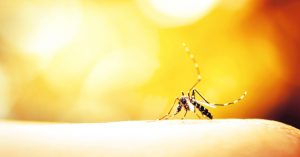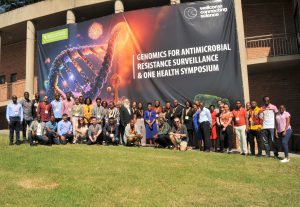The WHO has confirmed an outbreak of plague in Madagascar. In the latest report issued this morning (12 October 2017) the number of reported cases is 449, with 48 deaths (case fatality rate 11%). The outbreak is primarily located in the middle third of the island, centred around the capital, Antananarivo (239 cases and 21 deaths) and Toamasina Province on the east coast (147 cases and 9 deaths). A single area on the northern coast is affected. The majority of cases are presenting as pneumonic plague. A multisectoral national response coordination committee has been established, under the leadership of the Minister of Public Health (MOPH) and with the support of the WHO, to coordinate the response to the plague outbreak. Enhanced contact tracing, improved surveillance and diagnostic capacity, restriction of public gatherings, infection prevention and control and community mobilization are all underway. WHO has classified the outbreak as Grade 2, with the level of risk for local spread being high. Risk to the region is moderate because of frequent air and sea travel, but the global risk is perceived to be low. Currently there are no travel restrictions to Madagascar.
A South African basketball player who was attending the Indian Ocean Club Championships contracted plague while there, but was successfully treated in Madagascar. The player has returned to South Africa. He and his team members are being followed up – however they do not pose a risk.
Plague is a zoonotic disease caused by a bacterium Yersinia pestis. Where plague is endemic, it is usually found in rodents and is spread by fleas from rodent to rodent, or to other mammals. Humans may acquire plague from persons with pneumonic plague through droplet transmission or from direct contact with infected rodents or through the bite of an infected flea. The incubation period ranges from 2-8 days. Symptoms of pneumonic plague include cough, fever and chest pain.
South African travellers to Madagascar are advised to: 1) avoid highly populated areas, 2) avoid close contact with ill persons, 3) avoid contact with rodents and dead animals and 4) wear surgical masks while in transit. Liberal application of DEET-containing insect repellent is advised to prevent flea bites. Prophylactic antibiotics are not advised. There is a risk of contracting malaria through bites from infected mosquitoes while in Madagascar, making insect bite prevention doubly important. For further information, please visit the NICD website: nicd.ac.za. The WHO situational report may be found at: http://apps.who.int/iris/bitstream/10665/259208/1/Ext-PlagueMadagascar9102017.pdf




